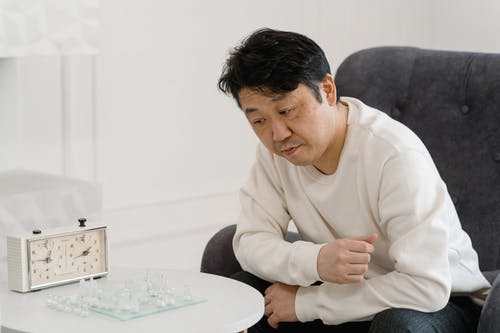Following on from last week’s blog which was my answers to 3 questions people in recovery from eating disorders often ask me about my experience recovering from anorexia nervosa I’m going to share my answers to 3 more common questions people in recovery ask me about recovering from anorexia nervosa.
I do this because when I was in recovery, I had a lot of questions I would have loved answers to. Some I simply didn’t have the right people in my life to ask, some I was too ashamed or embarrassed to ask and to be honest there were others I didn’t even know I “should” be asking.
If you are in recovery from an eating disorder and have some questions of your own and don’t know where to turn for the answers or don’t have anyone you can ask that you believe will give you a straight answer it is my hope that in this and last week’s blog, I address some of your questions.
I hope my sharing snippets of my journey and things I can only now understand in hindsight helps you along your path to creating your own freedom in a way that’s right for you.
Continuing on from last weeks blog “Do You Have Regrets? My Honest Answers to 3 Common Questions People in Recovery from Eating Disorders Ask About My Recovery” with today’s first question….
- Should I Tell My Friends and Family?

While you might be thinking of course I am going to say yes and to absolutely tell your friends and family, my answer to this question is actually mixed.
When I was in recovery from anorexia nervosa I had friends I was open and honest about my recovery with who were very supportive and understanding (even if they didn’t understand). I had friends who my sharing with them also didn’t really affect how they treated me. And I had friends who still unintentionally did and said very triggering things.
When I was in recovery from anorexia nervosa my family got better and better at communicating with me about it, they also helped me access treatment and continue to go to treatment when I wanted to give up. They also got frustrated at me, let me down in times I thought they’d be there for me and said and did things that sent me into full on downward spirals.
When I was in recovery from anorexia nervosa, due to my non-existent self-worth and self-esteem as well as my desire to please everyone I experienced a 9-month abusive relationship where my struggles with the eating disorder were intentionally and maliciously used against me to make me feel broken, inferior, shameful, guilty and devalued. It was horrific.
The truth therefore is there are some people that you absolutely should not confide in and there are some people you absolutely should.
It also depends on what you want to get out of telling them.
If you’re wanting to tell them because you have a hope that by doing so, they will understand, do everything right and facilitate you through your recovery 100% of the time, then don’t bother.
If you’re wanting to tell them because you believe they could be supportive but you are also at the same time realistic that they are not going to be supportive all the time or understand (most of the time) then go ahead and share.
I do believe telling some people is incredibly important.
Having people in your life who love and accept you for you as you are “warts and all” is a feeling second to none. This is true even for people who don’t live with eating disorders.
Having people, you can be open and honest with about what you are going through without the expectation that they then must do anything to make it easier for you or that you must change takes so much of the shame out it all.
For me this came in the form of an eating disorders support group.
I found a support group with a bunch of other people who had or still were living with eating disorders. To be in that judgement-free environment and hear others share some of the raw and vulnerable things they were experiencing allowed me to start to learn that that was ok, that having feelings was ok and that having needs was ok.
It allowed me to begin to do the same.
The moral of the story? Choose the people you tell and tell them only when your intentions for doing so are realistic (and be prepared that their reaction may not be what you want it to be, which is part of being realistic).
2. How Long Were You Sick For?

I think what people are really asking when they ask the question “how long were you sick for?” is “how sick were you, really?” so they can play a comparison game between themselves and myself.
The answer that I was sick for 15 years seems to surprise people and I no longer think it’s because I don’t look too many years beyond 15 and they’re trying to decide if I was 3 years old when I fell sick. I think it’s because 15 years does sound like a long time. For all intents and purposes, it is a fair chunk of life.
In hindsight it blows my mind that it was that long.
I am beyond grateful it wasn’t longer because I know it so easily could have been.
I know for all the energy and effort I put into recovery, for all the sacrifices and risks I took, I was undeniably also just one of the lucky ones.
One of the lucky ones who by some miracle does (eventually) find the treatment they need and gets out alive.
I was sick for 15 years and I experienced it all.
I was by every interpretation of the definition “sick enough.”
I know many other people, that I’ve worked with as clients, as friends or whose stories I’ve heard who were also sick for 15 years and more and who fully recovered.
For every reason you think you can’t recover, or you think your recovery is impossible for you compared with this other person because your situation is different or more difficult the harsh reality is you’re wrong.
You are right in that your situation is different to theirs, it may even truthfully be more difficult than theirs but you’re wrong that you can’t recover.
I strongly believe everyone can recover from an eating disorder.
This is entirely different to my saying you will recover.
Recovery can be possible for all without being guaranteed for any.
You may not recover.
Because our ability to recover depends on so many things including our access to treatment, our finding the treatment that is right for us, timing, the people in our lives and so on but your full recovery is always a possibility.
There isn’t anything you can do that will guarantee your recovery.
There is plenty you can do that will make your recovery more likely.
Just as there is plenty you can do that will make your recovery less likely.
3. How Do You Know When You’re Recovered?

The only answer I can ever give to this question that means anything real is “you will know.”
And even as I write this, I am aware of how ridiculous and “airy fairy” that would have been to past me.
But perhaps the very best way of knowing when you are recovered from an eating disorder is you no longer feel the desire to ask the question of “how will I know when I’m recovered?”
Because recovery from an eating disorder takes developing an honesty and connection with yourself that would make the asking of that question to the outside world obsolete.
When you’re there you know within your soul and gaining anyone else’s perception or opinion on that is no longer of any value to you.
If it is still important to you that you meet some medical criteria or gain someone else’s blessing that you’ve recovered you’re not done yet. You’ve got more work to do.
There really is no checklist you can check off as you go to assess your level of recovery (as much as I’d have loved there to be). There is no outside tool or person. That judgement can only be made by you and by the time you’re at the stage to make that judgement paradoxically it won’t be a question on your mind.
To me real recovery is when you stop trying to find and have all the answers before you do the thing and you instead step into the doing and the experience. Recovery is figuring it out as you go.
To me real recovery is when you drop the expectations of others or even your own need to have external guidelines for your recovery and how it should look and feel and instead step into the reality of your experience and you trust in that as your guide.
To me real recovery is when rather than push, challenge, bully or motivate yourself into doing the “hard things” you instead simply start to find yourself doing those things which were once hard with increasing ease. Hypnotherapy is the greatest tool I’ve ever experienced personally and professionally to achieve this because it is the most respectful means of encouraging our autonomy and increasing our control and power over our minds and lives.
A Brief Recap

Should you tell your friends and family about your eating disorder?
Yes, if you make the assessment that this is going to be useful to you.
If you are holding off telling them out of fear of shame or judgement but deep down in your heart of hearts you know that your telling them will actually be useful, please tell them. The people in your life who love you want to help. They may not always get it right and they really can’t be depended upon to get it right ever but if you trust them, tell them.
Being able to be open and honest with the good parts of our lives and the less than positive parts of our lives and still be loved and supported through it all is the greatest tool for healing.
Does the longer I am sick for, the number of comorbidities or traumas in my life make it impossible for me to recover?
No, for each and every one of us full recovery is possible.
It is not inevitable, but it is always possible. Your role is simply to find great help to develop all the skills and resources you missed out on that allowed for an eating disorder to come into and persist in your life in the first place (think self-worth, boundaries etc). Your role is to choose the options and do the behaviours that make an eating disorder less likely to be a part of your life and future.
Your recovery is never guaranteed but it is always possible.
How will I know when I’m recovered?
When you no longer feel the need to gain anyone else’s opinion on your recovery other than your own.
You are recovered when you are the greatest source of information as to what is your reality and the greatest guiding force in your life.
You are recovered when the need to ask, “How will I know when I’m recovered?” is obsolete.
Living with an eating disorder is about the most out of touch with oneself a life experience can be. Therefore, to me when the question “How will I know when I’m recovered?” becomes redundant because you “just know” that is when you know you are recovered.
I hope you’re able to use my answers to these questions in ways that help you make some of the decisions you must make if it is your dream to experience a fully recovered life.
It’s not a choice and not a path you have to take but I so hope you do.
If you have any questions, I haven’t answered in this and last week’s blog “Do You Have Regrets? My Honest Answers to 3 Common Questions People in Recovery from Eating Disorders Ask About My Recovery”, if you would like clarification around anything I’ve written in this blog or if you would just like to add to the invaluable discussion around what it takes to truly recover from and eating disorder please feel welcome to comment below or email me directly at [email protected]
With my whole heart I hope you found this information useful and inspiring.

Become Great. Live Great.
Bonnie.



